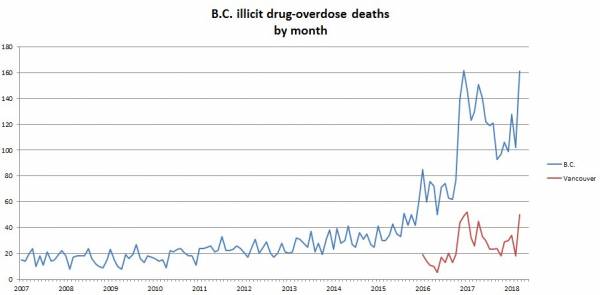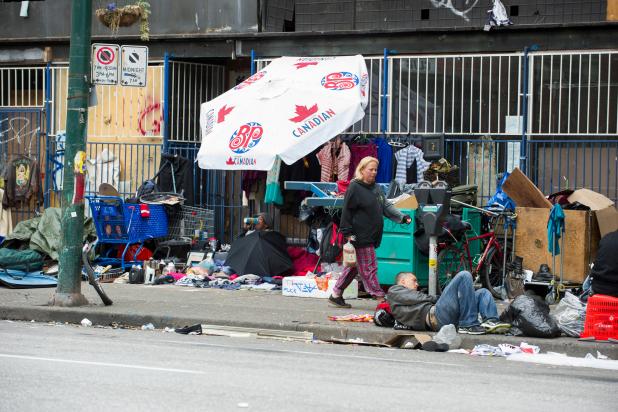Health Canada granted an exemption from the Controlled Drugs and Substances Act to the Province of B.C. from January 31, 2023 until January 31, 2026.
While some consider this the end of the war on drugs in Canada, others hope it is a solution to the recent dramatic increase in overdose deaths.

The policy follows the actions taken in the State of Oregon in November 2020, which thus far does not seem to have made things better.
Adults in B.C. are no longer subject to criminal charges for the personal possession of small amounts of certain illegal drugs.
Under this exemption, adults (18 years and older) in B.C. are not arrested or charged for possessing small amounts of certain illegal drugs for personal use. The illegal drugs covered by the exemption are:
- Opioids (such as heroin, morphine, and fentanyl)
- Crack and powder cocaine
- Methamphetamine (Meth)
- MDMA (Ecstasy)
Adults found in personal possession of any combination of these illegal drugs that adds up to a combined total of 2.5 grams or less are not subject to criminal charges and the drugs are not seized. Instead, they are offered information about health and social supports. This includes support with making a referral to local treatment and recovery services, if requested.
Decriminalization is not legalization. Under this exemption, illegal drugs (including those listed above) are not legalized and will not be sold in stores. Drug trafficking remains illegal, regardless of the amount of drug(s) in possession.
The exemption does not apply to certain circumstances.
- Adults found in possession of any amount of illegal drugs in these locations could be charged with a criminal offence:
- On the premises of elementary and secondary schools and licensed child-care facilities
- At airports
- On Canadian Coast Guard vessels and helicopters
In many cases, illegal drug use continues to be prohibited on private property. This includes places like shopping malls, bars and cafes. Police will continue to retain legal authority to remove people from these premises if open drug use is occurring against the wishes of the owner. In public places, drug use is also subject to local regulations.
This exemption applies in British Columbia. In all other Canadian provinces and territories, the existing laws about illegal drugs still apply. The exemption does not change Canada's border rules.
Taking illegal drugs across domestic and international borders remains illegal. This applies whether exiting or entering the country, even if travelling to and from B.C. where the exemption is in place. It can result in serious criminal penalties both in Canada and abroad.
Two companies were licensed to produce and sell several types of drugs after they were decriminalized in the province of British Columbia.
Prime Minister Trudeau clarified Friday that they did not have 'permission to sell it commercially.'
Canadian biosciences company Sunshine Earth Labs announced on Thursday, March 2, it received permission from Health Canada to "legally possess, produce, sell and distribute coca leaf and cocaine," as well as morphine, MDMA (ecstasy) and heroin.
Its announcement comes on the heels of a similar licensing arrangement offered in February to Adastra Labs. Adastra's license also allows it to produce and sell psilocybin and psilocin – hallucinogens more commonly known as magic mushrooms that produce effects similar to LSD.
"We will evaluate how the commercialization of this substance fits in with our business model at Adastra in an effort to position ourselves to support the demand for a safe supply of cocaine," chief executive Michael Forbes said.










